ProductServiceUX/UI
?What If! —
What I did
Focus groups
Guerilla research
Prototyping
Interface design
Service mapping
User interviews
User journey mapping
Wireframing
Brief
Identify and develop new business opportunities - Grow revenue and capitalise on emerging marketplace opportunities around mobility and tech in the automotive space.
Team
In collaboration with strategists and designers at
Key insights
I was brought in after an initial ‘blue sky’ discovery phase, where scores of potential ideas had been whittled down to 3 to take forward - A ‘Mobile Mechanics’ service, ‘SuperDriver’ Accreditation and Maintenance service, and a ‘Car Share Anywhere’ service. These areas had consistently come up as opportunities at the early research stage - outlined below
Mobile Mechanic
The problem
Car servicing is a headache for drivers - messy booking options, losing access to your car, and the worry of being ripped off.
The solution
Provide direct-to-consumer solutions for independent workshops expanding into mobile servicing - convenience and reassurance for the end consumer, and increased acquisition for the mechanic.
SuperDriver Accreditation & Maintenance
The problem
Car servicing is not something we want to spend our money on, but when it comes to selling the car, proper servicing becomes a driving factor in achieving a good price. However, we rarely think about car servicing in these terms, or if we do, it’s normally too late.
The solution
Make car servicing something that drivers are motivated to engage with - By documenting services and using Shell products, drivers get slower depreciation and a better final sale price for their car. By rewarding what was previously a grudge purchase, Shell can unlock a new demand for premium car services and products.
Car Share Anywhere
The problem
Cars are a huge investment, and yet they remain stationary 90% of the time; a constant expense that continues to depreciate. As the concept of ownership is shifting in other industries (e.g. entertainment and accommodation), consumers are looking for ways to offset the costs of their possessions.
The solution
In a changing mobility ecosystem, we help car owners get the most value from their cars, and allow drivers who don’t own cars to have the freedom of driving whenever they need. By gaining a foothold in this rapidly growing industry, Shell Helix can open up an entirely new channel, while also identifying the needs of the access economy customers.
Exploring the problems
We started to dig deeper into the respective industry areas, via a combination of desk-based research, interviews and focus groups, and competitor guerrilla analysis. We were looking to prove or disprove our assumptions around user needs and the opportunities they presented. We spoke to second hand car buyers and sellers, to find out more about their behaviours, motivations and issues with the used-car market. We asked what they would expect from a new accreditation service, and they ranked potential features.
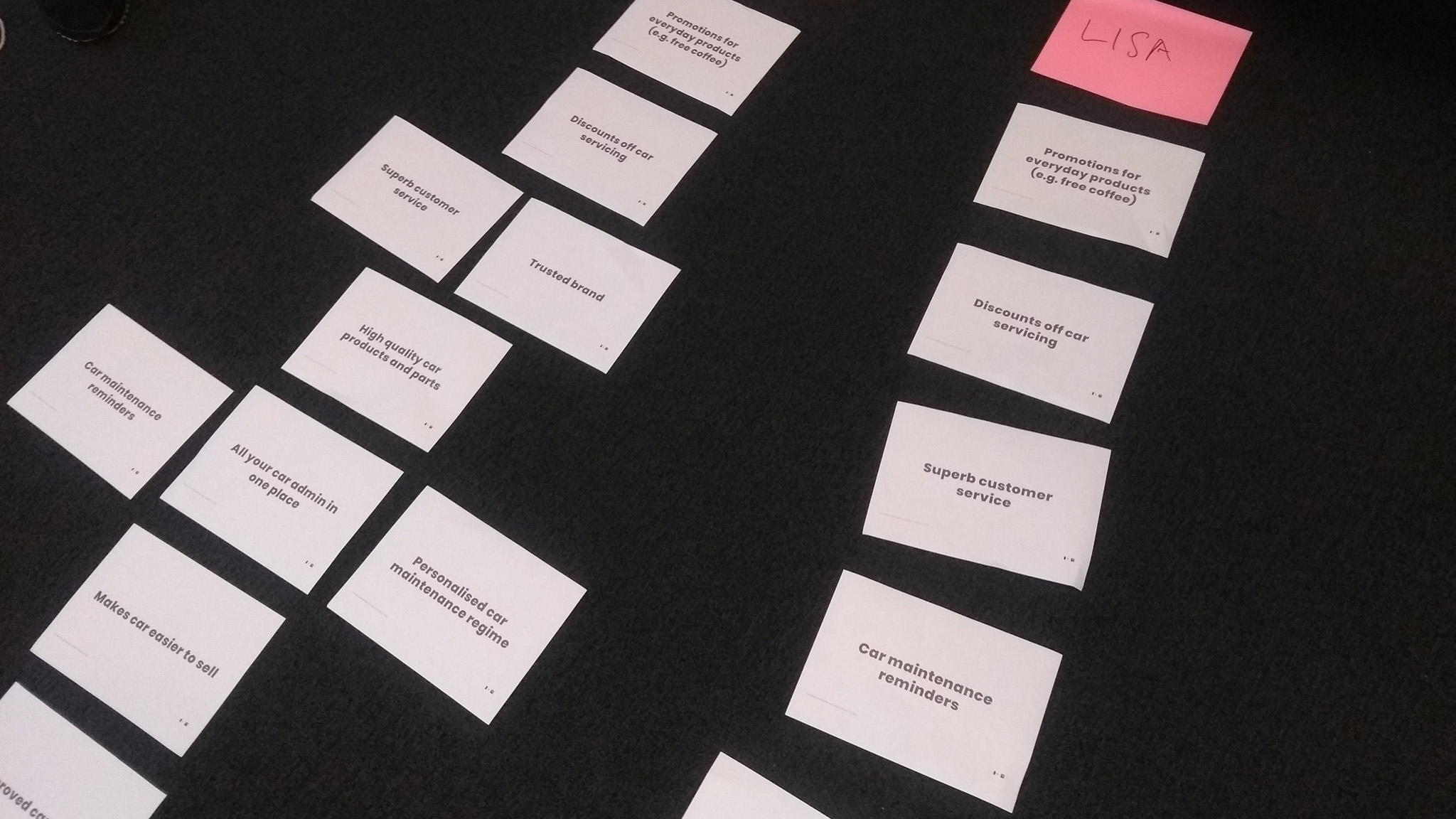
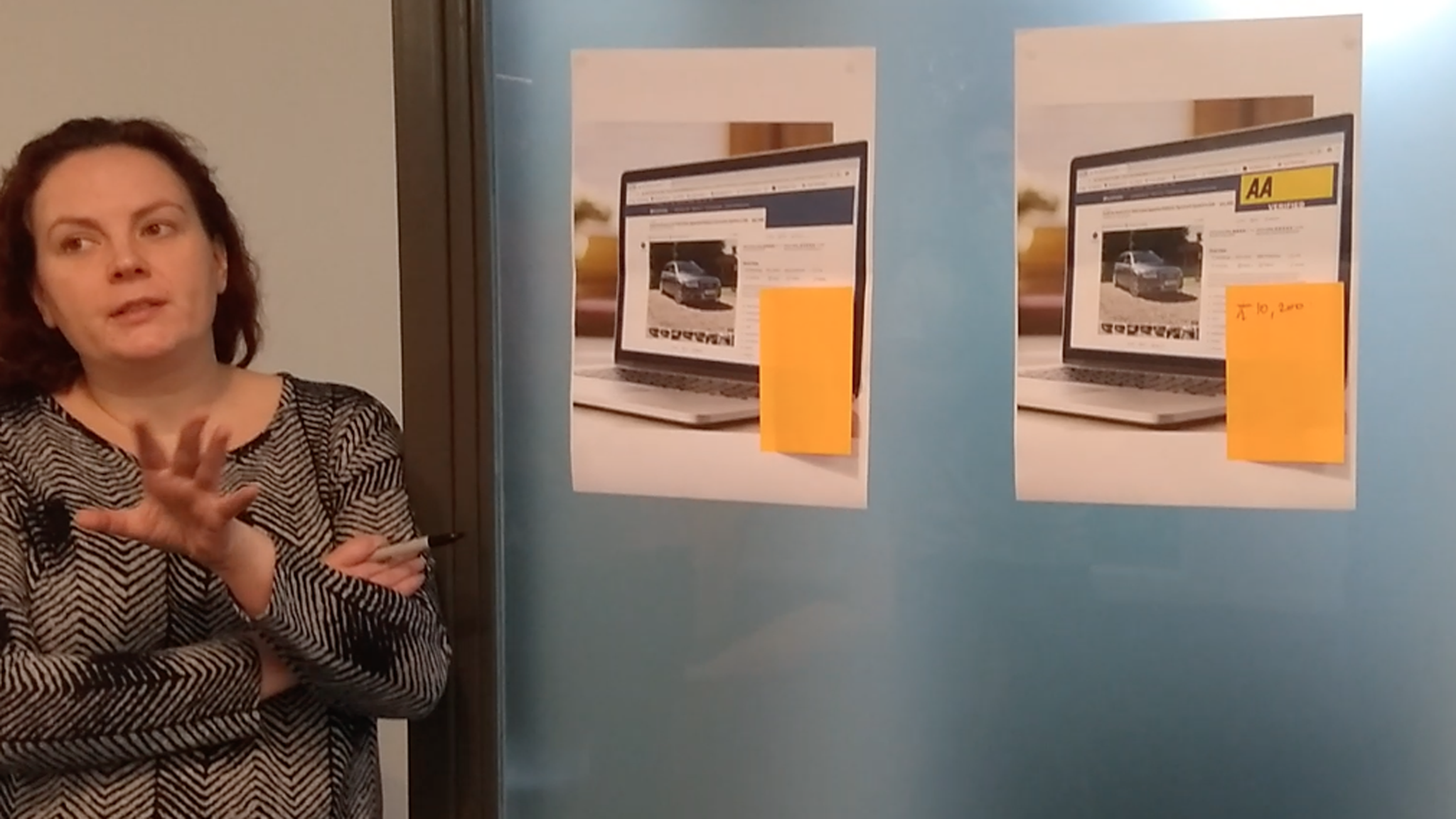
“I’d pay more for a car that’s been serviced by a ‘main dealer’ (i.e Ford car serviced by Ford garages) - For the full service history, their knowledge and training”
Second-hand car buyer
We also interviewed used-car valuation professionals, to understand the key factors affecting valuation and depreciation, and how we might positively effect these with our service.
For CarShare, we spoke to current car renters, to find out what they liked and disliked about available services, and identify how we could do it better.
They sketched out an app interface to show what features they’d expect it to have, and picked brands they might expect to offer a new car share/rental service.
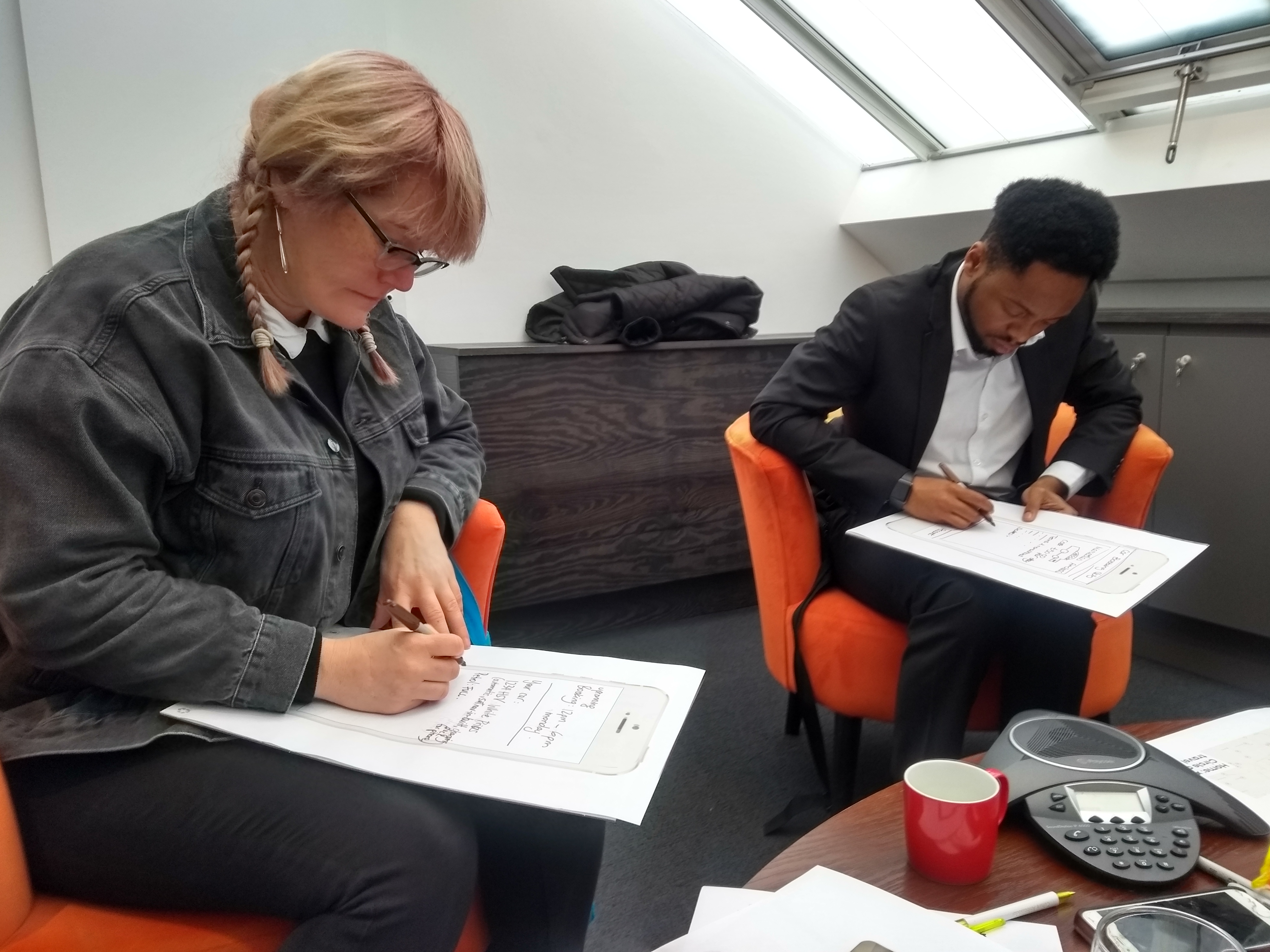
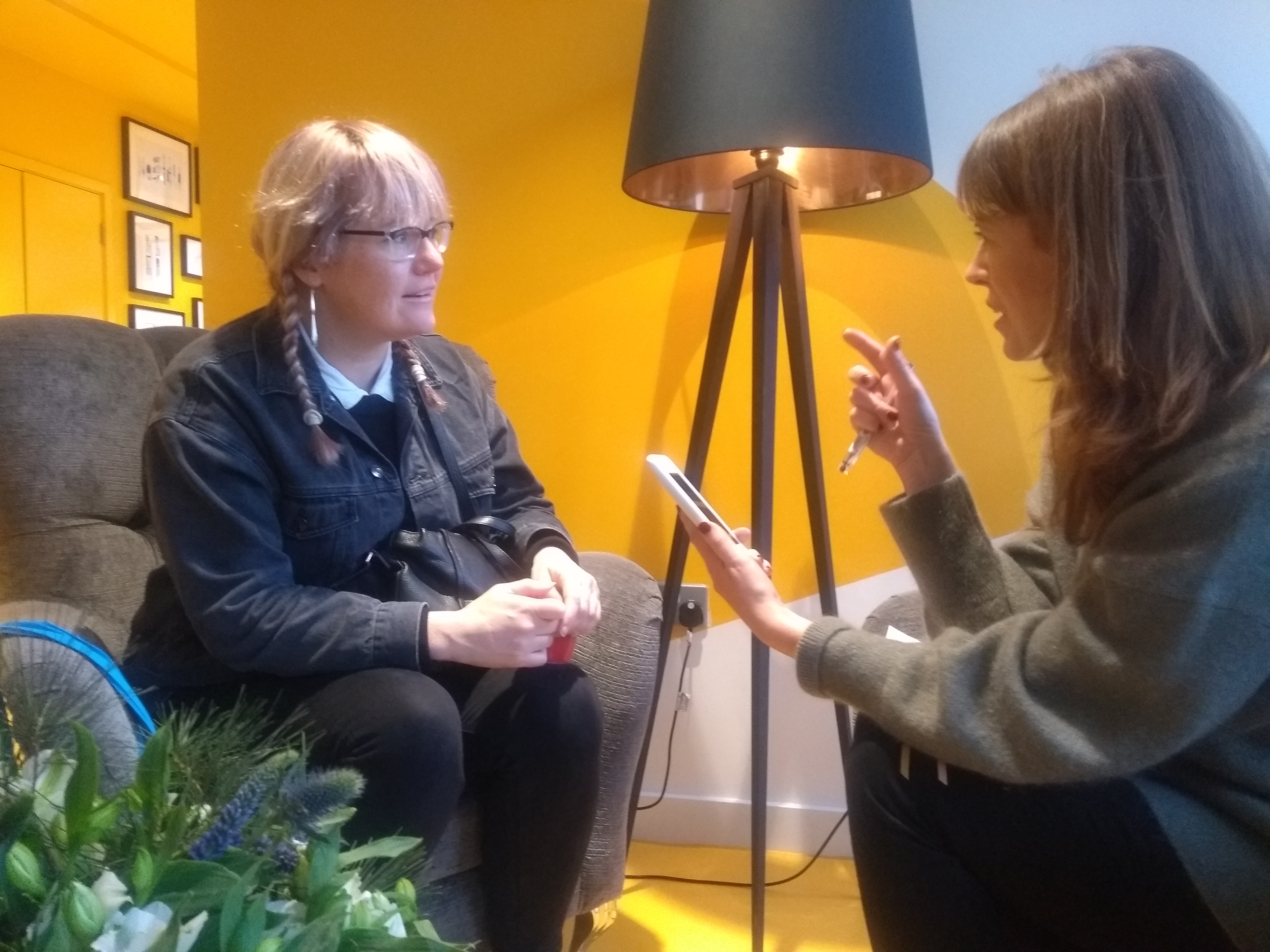
“I would pay more for one way journeys - and use the service (Zipcar, Easycar etc.) a lot more.”
Car renter
“Zipcars are clean, new, modern - all in all a great experience”
Car renter
We learnt a lot about current failings of the existing providers, and how we could improve on these. We also saw how these services had already gained a loyal user base, and how effective and established they were.
To compare Airbnb and it’s car equivalents, such as Drivy, we interviewed AirBnB hosts to identify how we might learn from their success.
“Oh yeh, I’d rent my sons car out. That’s just a car to us - It sits on the drive for three months at a time without being used. Renting it would cover all it’s maintenance costs”
Airbnb host
As we learnt more about how users expected the respective services to work, and what key pain points we could solve, we broke into teams of 2 to develop each service.
I worked on developing the Mobile Mechanic idea into a more tangible form, understanding users, mapping out their touchpoints with the service, and some early prototype development.
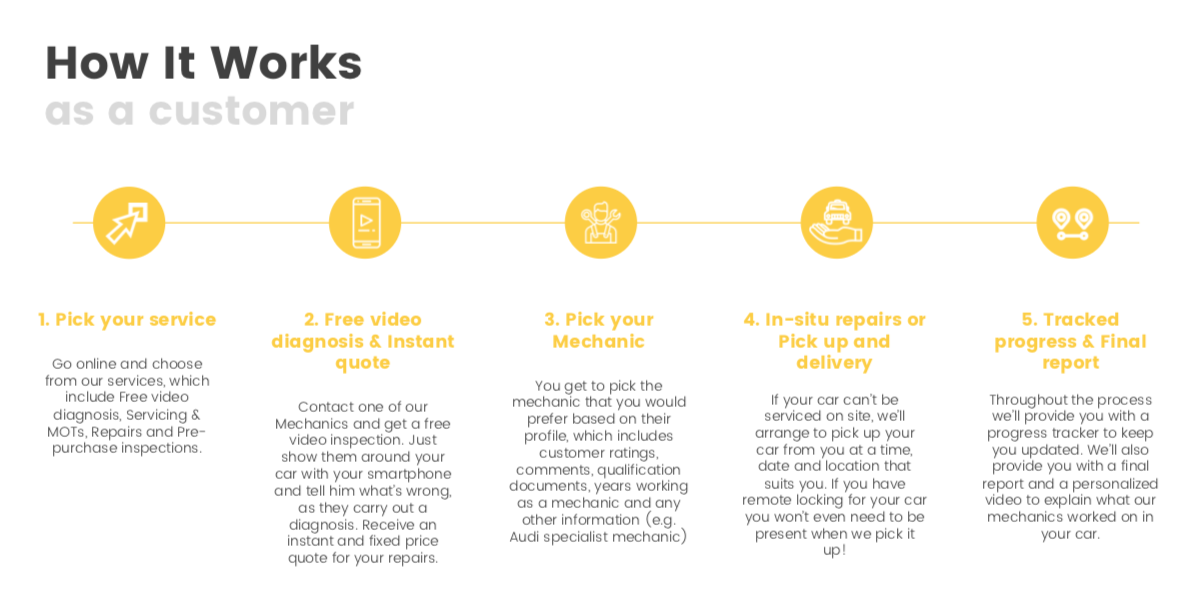
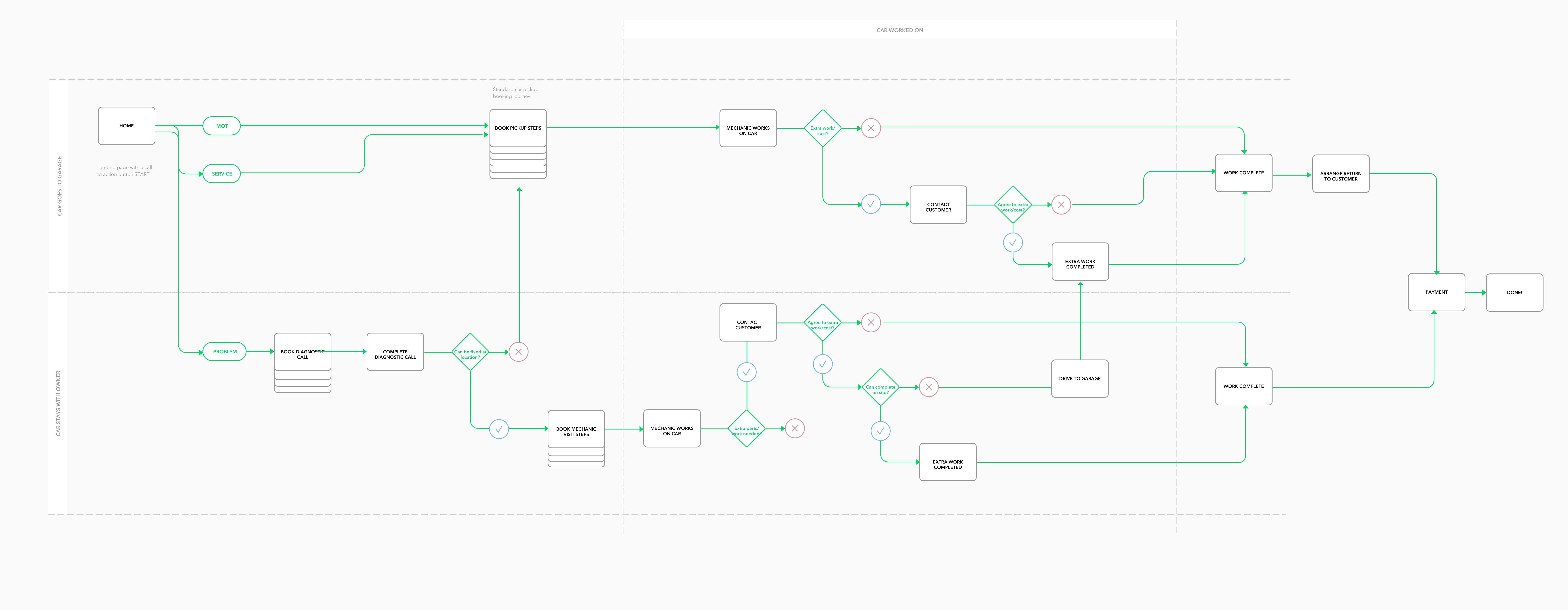
As well as mapping out the key points of interaction with the service, we ran a range of social media ads to identify the main motivations for potential users interacting with it in the first place.
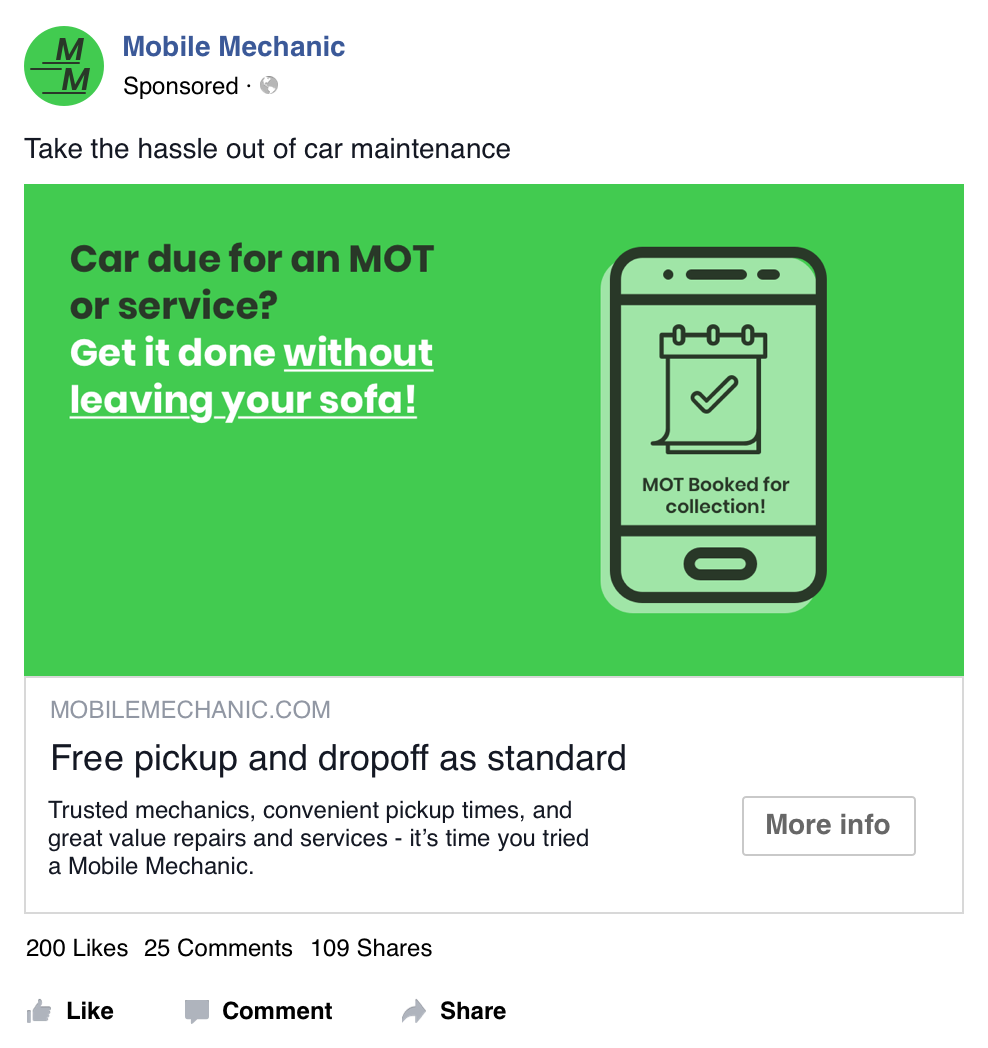
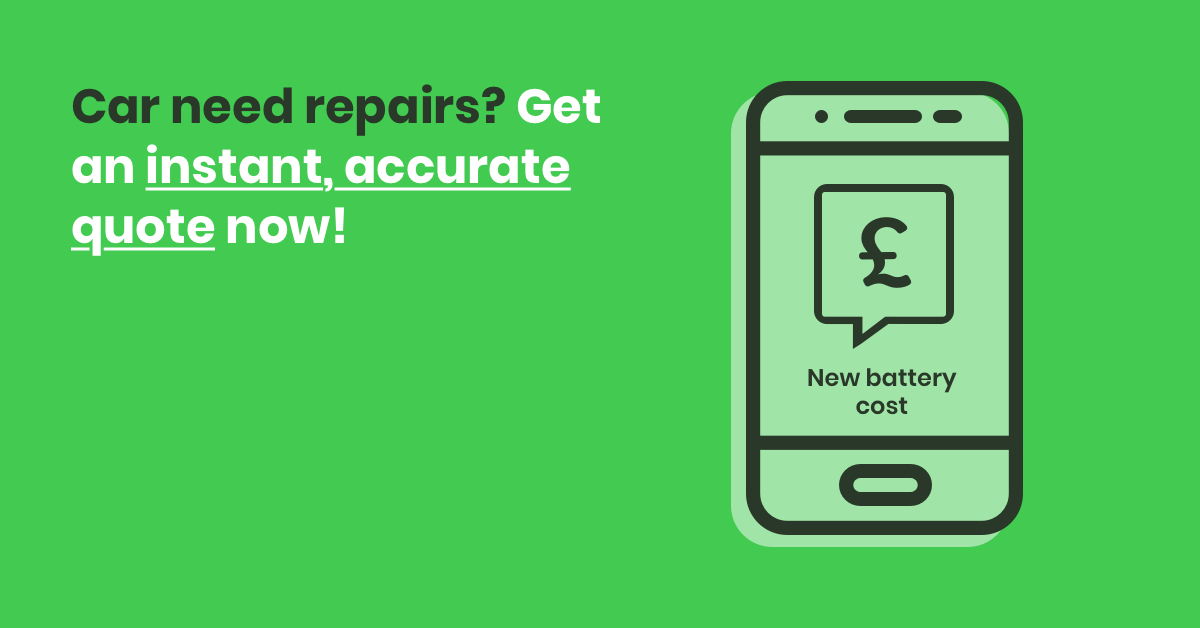
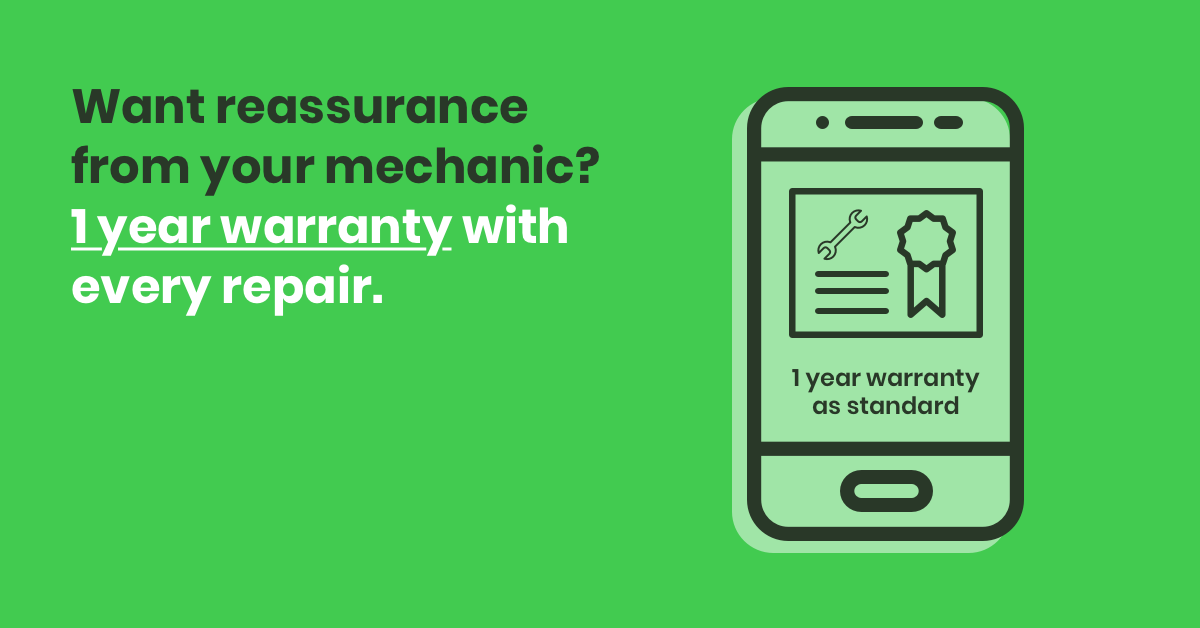
Next steps
Initial engagement with the value proposition was encouraging, with above average clickthroughs on all ads - particularly those centered around free video diagnosis and call out services. As we continued to research and model the commercial aspects of the Mobile Mechanic, I also worked on the early proposition for an accreditation platform to help users preserve the value of their car. See the case study
